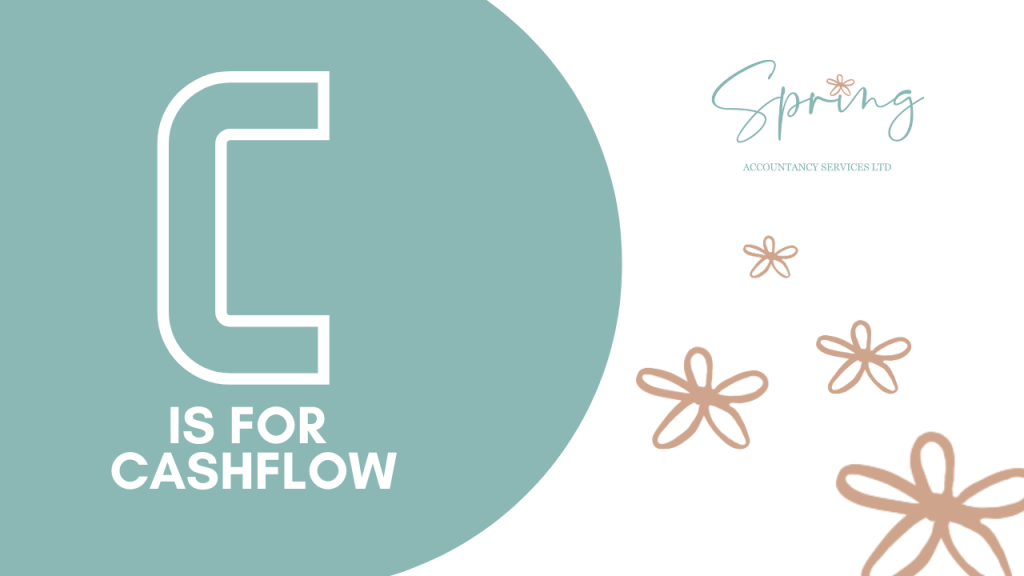C is for Cashflow - A to Z Accountancy Top Tips
Why does everyone keeping banging on about cashflows and what does it mean?
Cashflow is the total money going in and out of a business in a certain period.
A cashflow forecast is the plan for the total money going in and out of a business in a certain period. It is really useful to know what should be in your bank at a certain point in the future. This can be for 12 months or longer, but a great start is forecasting quarterly.
This forecast can be on excel but there are some great software’s to make it really easy and is built using estimates of what income and expenditure you have. Having a budget is a great help for this.
If all your predicted income less all the known expenses is a positive number, then you have a positive cashflow. This is important to see that your business is in a good financial position. It has been very important lately when many businesses have zero income to they can see how long they can keep affording their expenses before they run out of money.
A lack of cash reserves is one of the biggest reasons why businesses fail. Cash reserves doesn’t mean a bag full of notes, this means what cash you have easy access to – eg your bank.
Here are some top tips on how to improve your cashflow;
- Make sure your customers pay you – don’t be afraid of chasing for money owed to you.
- Reduce your customer payment terms – if you currently allow 30 days or more for customers to pay you then look at reducing this down to 14 days or even 7 and discuss this with customers.
- Make the most of supplier payment terms – if they offer 30 days to pay invoices then why not use them.
- Use direct debits – If you have income and costs then can be set up on direct debits then is beneficial for cashflow planning as you know the exact date and amounts each month for money to flow in and out of your bank.
- Large expenses – Often the large expenses are overlooked when preparing cashflows so know what and when any large one-off expenses are, such as tax, annual subscriptions, licences, or insurance.
If you need help with your cashflow forecasting and monitoring, then get in touch.
Flo
